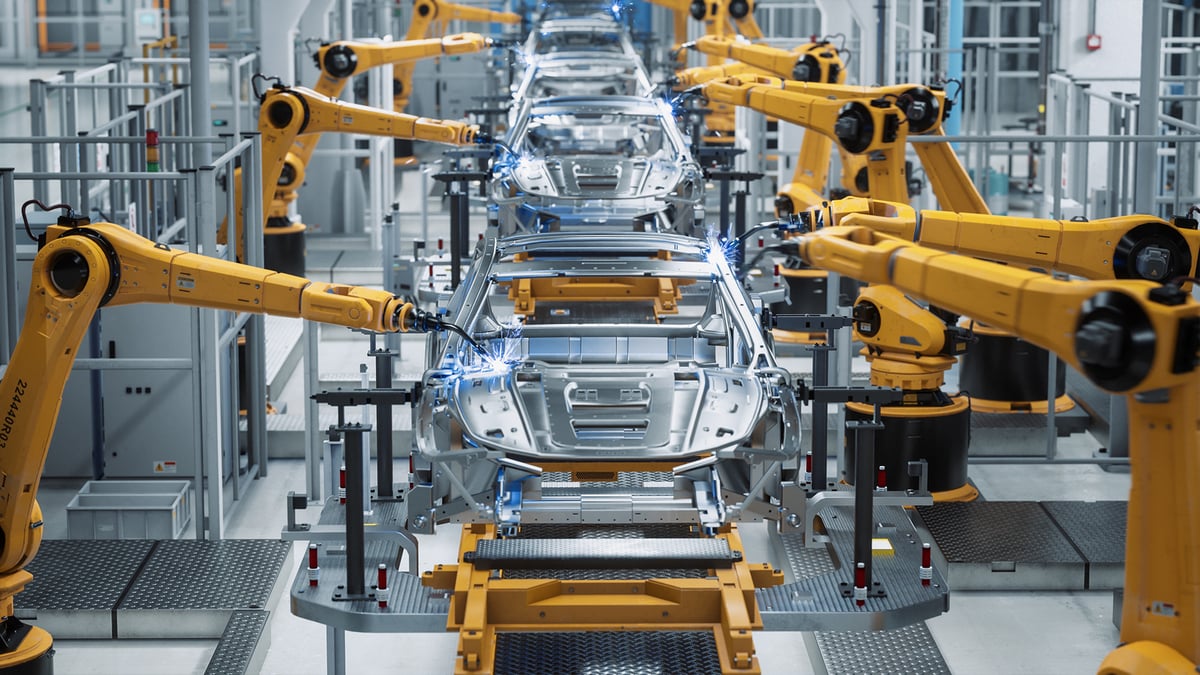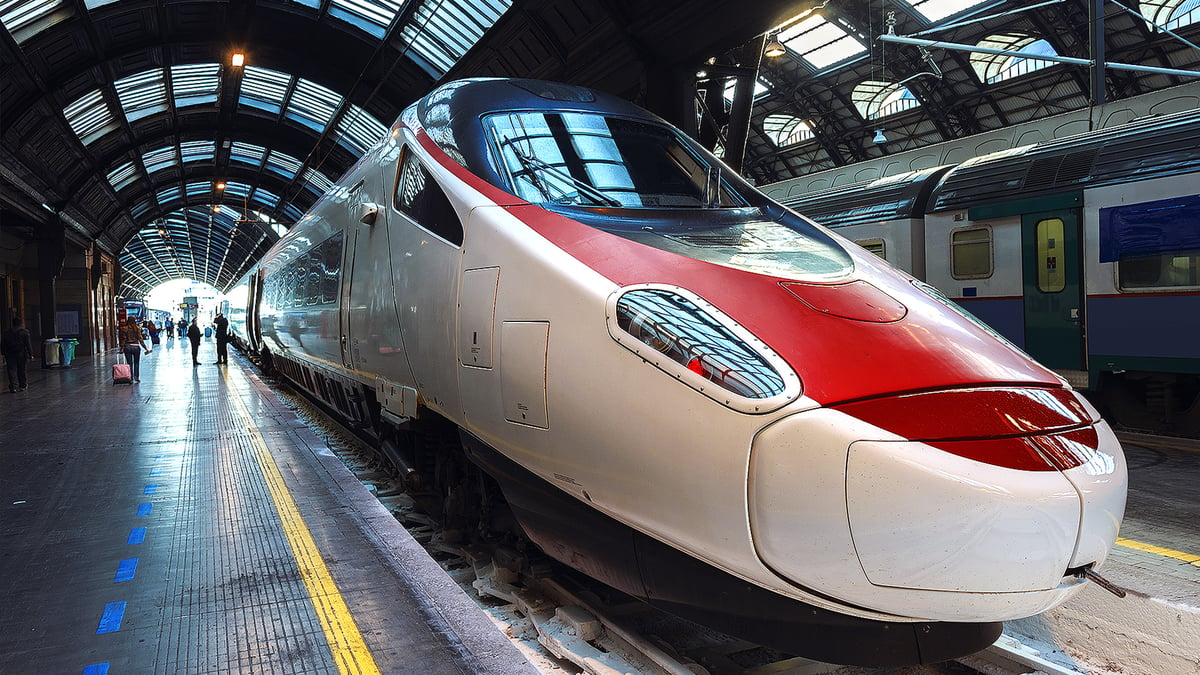
Made in Italy: How Italian Technology Is Powering Human Progress
From motorcars to the Moon, Italy’s high-tech industries are at the forefront of global innovation in areas such as transport, computing and space technology.
While famed for fashion, furniture and luxury goods, Italy’s expertise in high-quality production and tasteful design has helped it excel across a wide range of manufacturing sectors. Overseas investors are taking stock of Italy’s industrial base and discovering an economy steeped in scientific research, with numerous regional manufacturing hubs and the involvement of many leading academic institutions. Investors in areas such as vehicle manufacturing, aeronautics and cutting-edge space exploration are eyeing extensive opportunities across the Italian economy.
The world’s top manufacturer of luxury yachts, with brands such as Benetti, and home to Europe’s biggest shipbuilder, Fincantieri, Italy also makes some of the world’s most coveted luxury car brands. The nation’s high-tech manufacturing innovation is also in evidence in commercial aircraft, space technology and other sectors.
Italy’s manufacturing sector accounted for 22.6% of GDP in 2021, higher than in many other Western nations, and the country has a strong export sector. Its 160,000 small and medium-sized businesses are a significant component of the economy, helping to supply specialized services and technology to larger manufacturers. Synergies such as these are piquing the interest of overseas investors who are looking to open factories, research centers and businesses in the country.
In 2019, foreign direct investment (FDI) into Italy exceeded $18 billion, and by 2020, the total stock of FDI in the country was worth some $484 billion. One of Europe’s biggest consumer markets, with a population of 60 million, Italy’s attractions for investors include highly developed infrastructure and its key geographical location, standing at the crossroads of Europe, the Middle East and North Africa. To boost Italy’s FDI, the government created the Invitalia body and is investing nearly €24 billion over five years in the Industry 4.0 strategy to boost manufacturing through tax credits and funding for infrastructure and research.
One of Italy’s biggest industries is vehicle production, and the nation ranks sixth in Europe and 19th in the world. Some 60% of the €106 billion auto sector comes from car manufacturing, with 10% from commercial vehicles, trucks and buses and 30% from auto components. Vehicles are manufactured by large companies such as Fiat Chrysler, with foreign multinationals active in the sector through subsidiaries and partnerships.

Manufacturing is mainly centered in four regions, with the industrial region of Piedmont dominated by Fiat Chrysler Group. “Motor Valley” in Emilia Romagna—between Bologna and Modena, the birthplace of Enzo Ferrari—is home to luxury car brands such as Ferrari, Lamborghini, Maserati, Ducati and Pagani. The district’s annual motor festival attracts car enthusiasts from around the world. Meanwhile, many component factories are based in Lombardy, while the Abruzzo motor district hosts businesses developing new technology for vehicles and other machinery.
Italy’s skills and infrastructure surrounding vehicle manufacture are proving attractive for foreign investors. Germany’s Kässbohrer, Europe’s biggest manufacturer of semi-trailers, has made a significant investment with the launch of Kässbohrer Italia Srl as part of its European network.
Building on its expertise in transport technology, Italy has forged a strong position in space technology, where the country is the sixth-largest manufacturer worldwide, according to the European Space Agency, with total space industry revenue amounting to €2.23 billion in 2018.
While this may be a small sector compared to Italy’s other industries, it demonstrates innovation in advanced technology such as satellite development and Earth observation. Italy’s space industry is also pioneering pressurized modules such as those that will be used by NASA’s Artemis Program as habitation modules and lunar shelters.

“The fact that the first ‘houses’ on the Moon are being developed in Italy is a huge boost for innovation, as it illustrates the extent to which our industrial ecosystem is able to deliver advanced and cutting-edge technology that benefits all of humankind,” says Ambassador Lorenzo Angeloni, Director General for Cultural and Economic Promotion and Innovation at Italy’s Ministry for Foreign Affairs and International Cooperation.
Investors are also attracted to Italy’s aerospace sector, which is the seventh largest in the world and the fourth biggest in Europe by revenue, reaching over €16 billion in 2018. Aircraft account for some 86% of this revenue, with space technology comprising 14%. With 514 companies and nearly 50,000 employees involved in the aerospace industry, FDI in the sector is growing annually and has reached over €1 billion. The industry plays an important role in economic development, and there are aerospace industry districts in 11 regions of Italy. The sector relies on constant innovation and research, and according to the European Patent Association, Italy had the third-highest number of patent applications in air transport in 2019, behind Germany and France.
A significant investment has been made in Italy’s aerospace sector by US engineering multinational GE, which purchased Avio from Leonardo, the country’s leading aeronautics and defense company. Avio Aero recently announced a significant investment of €77.8 million including over €50 million in research and development. With this expertise in transport technology and manufacturing, it is no surprise that international businesses are investing in Italy.
The nation has a highly developed railway system and has advanced manufacturing capacity in rail, such as its famed Pendolino family of tilting high-speed trains, first manufactured by Fiat Ferroviaria, which was acquired by French company Alstom in 2000.

As part of the 2022–2031 Industrial Plan of the state railway system, Italy will spend some €160 billion updating its rail infrastructure and €190 billion on overland transport. A lucrative area for foreign investment, Italy’s rail sector has attracted interest from Japan’s Hitachi Group, which created Hitachi Rail Italy in 2015 after buying the state-owned AnsaldoBreda rolling stock company. Hitachi Rail Italy is investing some €50 million in the digital transformation of its plants in Pistoia, Naples and Reggio Calabria in line with the Industry 4.0 plan, which will help increase the production of trains, regional trains, trams and subways, and will boost Italian railways and expand foreign exports.
Italy is also home to some of the world’s most advanced supercomputers, including the fifth most powerful computer in the world, Leonardo, located at the Tecnopolo in Bologna.
“Italian inventions and products represent both the avant-garde and the state of the art in sectors where originality, resourcefulness and technological sophistication are essential,” says Angeloni. “From AI to the space economy, renewables to quantum computing, Italy’s technological innovations are helping to guide humanity into the future.”
